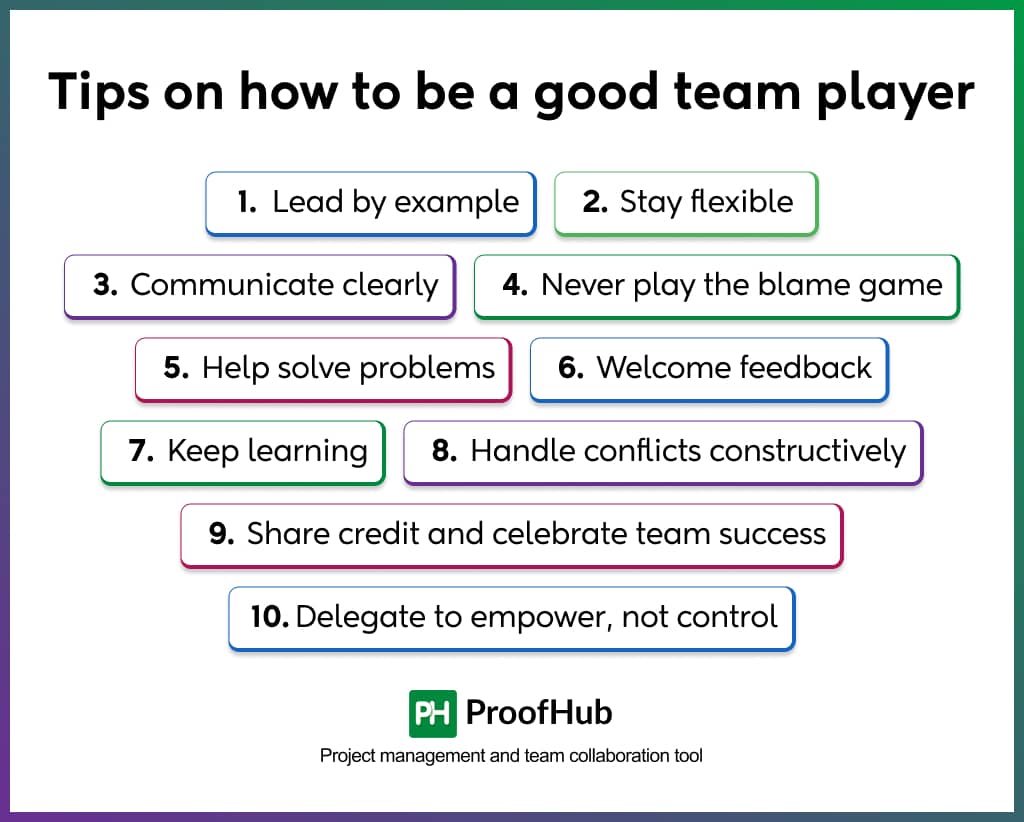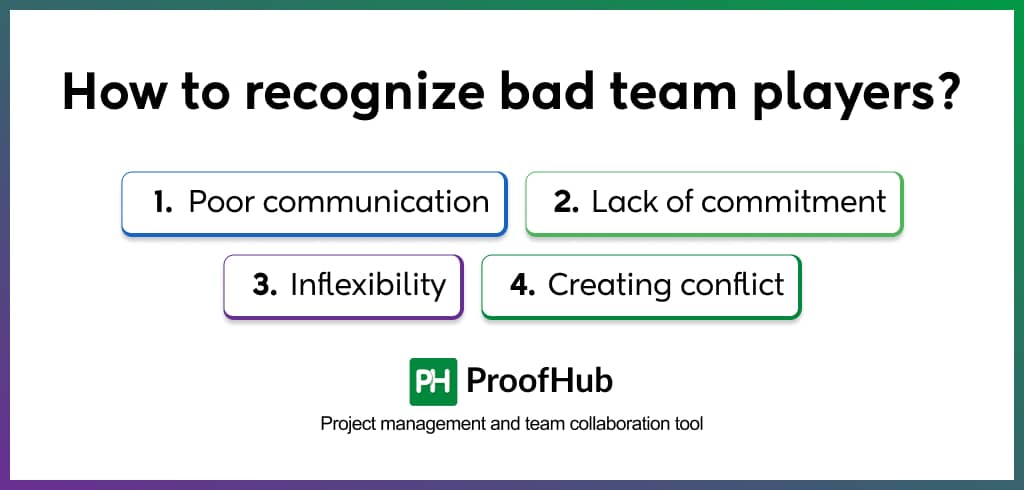Getting promoted to a manager is exciting, but it also brings the pressure of bringing out the best in your team. You are no longer just contributing your skills. Now your success depends on how well you can harness the abilities of everyone around you.
Working together with your team allows for a fresh and creative perspective on problem-solving. This diversity of thought not only leads to more innovative solutions but also helps identify potential bottlenecks early.
Take Luka Modrić during the 2018 FIFA World Cup. He had always been a world-class player, but 2016 was the first time he wore the captain’s armband for Croatia in a major tournament. Suddenly, he was not just expected to play well; he had to lead the entire team.
He was not the loudest or flashiest, but his unselfish play and ability to bring out the best in others led Croatia to its first-ever World Cup final. Even after winning the tournament’s best player award, he focused on team praise, not personal glory.
That’s what being a team player as a leader looks like.
This story teaches us that it’s not about taking control of everything or chasing recognition. It’s about lifting others, building trust, and putting the team first, even when the pressure is on.
If you are stepping into a managerial role and wondering how to lead without losing your sense of teamwork, you are in the right place.
Based on real, tested strategies from the field, here are 10 actionable tips to help you be a better team player in your daily work.
What is a team player?
A team player is someone who not only fulfils their own responsibilities but also works to elevate the performance of the entire group. They listen with intent, communicate openly, support colleagues through challenges, and remain dependable under pressure.
Being a true team player also means building trust, taking accountability for both successes and failures, and prioritizing the team’s goals over personal recognition.
Tips on how to be a good team player
Being a good team player means consistently contributing to the team’s success, adapting to challenges, and supporting others so everyone can perform at their best. It’s not about standing out; it’s about showing up, working collaboratively, and helping the group move forward.
Here are some practical tips to help you do exactly the same:

1. Lead by example
As a new manager, your team will take cues from your behavior more than your words. If you want them to collaborate, communicate openly, and stay accountable, you need to embody those qualities yourself.
By demonstrating the professionalism, work ethic, and integrity you expect from others, you set the standard for how your team operates and create an environment where great teamwork becomes the norm.
Discover 11 Leadership behaviors that build high-performing teams
2. Stay flexible
In any team, things can change rapidly: deadlines can shift, or priorities can be rearranged. A good team player remains open to these changes without resisting or becoming frustrated. Being flexible means stepping in when needed and doing what’s best for the team and the current situation, even if it deviates from your original plan.
3. Communicate clearly
As a manager, your words set the direction for your team. Clear communication goes beyond simply sharing information; it’s about ensuring your message is understood and that everyone feels comfortable speaking up.
To clearly communicate, encourage open conversations, ask questions when things aren’t clear, and check in regularly to share your progress.
4. Never play the blame game
If something goes wrong, pointing fingers would not solve the problem. It just creates tension. Sometimes, things are out of your control, and it’s okay to step back. Instead of blaming teammates, focus on how the team can move forward. In any group, mistakes can happen, but it’s how you handle them that really matters.
5. Help solve problems
Every team faces problems. It could be a missed deadline, a miscommunication, or a task that’s not going as planned. Instead of pointing out what’s wrong, a good team player looks for ways to fix the issue. They think about what will help the whole team, not just themselves, and suggest simple, practical ideas that move things forward.
6. Welcome feedback
Take feedback as a chance to improve, not a personal criticism. If you are asked to give project feedback, be tactful and respectful. If you are receiving it, don’t get defensive and accept the necessary feedback with open hands.
7. Keep learning
Stepping into a leadership role doesn’t mean the learning stops; it’s only the beginning. Expanding your knowledge, whether through online courses, leadership training, or learning from peers, keeps you relevant, adaptable, and ready to handle new challenges. This growth not only enhances your capacity to assume greater responsibilities but also sets a powerful example that encourages the entire team to continue improving.
8. Handle conflicts constructively
Conflicts will happen; it’s a natural part of working with a team. What matters is how you respond.
Good team players don’t avoid difficult conversations. They address issues calmly and respectfully, focusing on solutions that support the team’s goals.
When handled well, conflict can lead to better understanding, stronger relationships, and a more open team culture where people feel heard.
9. Share credit and celebrate team success
When the team does well, it’s important to recognize everyone’s effort, not just your own. Sharing credit builds trust and shows that you value your teammates. Taking time to celebrate wins, big or small, helps keep morale high and motivates the team to keep performing well.
10. Delegate to empower, not control
When you delegate, focus on matching tasks to people’s strengths and giving them the clarity they need to succeed. Set clear expectations, provide the necessary resources, and then step back to let them take ownership. Avoid micromanaging, check in to offer support, not to take over. This approach builds trust, strengthens skills across the team, and allows everyone to contribute at their best.
Also read: Manager’s guide to delegation: Everything you need to know
What are the qualities and characteristics of a team player?
A good team player consistently strengthens the group by being dependable, positive, communicative, proactive, and committed to the team’s success over individual recognition. They bring qualities that not only help get the job done but also make the workplace more collaborative, trusting, and motivating. Here are the key qualities every team player should demonstrate:
1. Reliable and accountable
As a manager, your team needs to know they can count on you. That means doing what you say you will do, meeting deadlines, and showing up prepared. When things don’t go as planned, you don’t make excuses; you take responsibility and look for solutions. It builds trust, sets the tone for your team, and shows that accountability starts with you.
Read more: What is leadership accountability and why does it matter?
2. Positive attitude
Positivity is contagious, and it starts with you.
Your mindset directly influences the energy and performance of the entire team. A good team player approaches challenges with a can-do spirit and remains composed under pressure. For managers, this attitude not only keeps morale high but also sets a clear example for the team: challenges are temporary, but the drive to overcome them is constant.
3. Communicates effectively
Good team players express themselves clearly and listen with intent. They ensure their message is understood, ask questions when in doubt, and adapt their communication style to suit the audience. This means not only speaking up when necessary, but also creating space for others to contribute.
4. Motivates and inspires team members
A good team player actively uplifts those around them. They bring enthusiasm to their work, set a positive example through their actions, and make others feel valued. Instead of focusing solely on their own success, they celebrate team wins, recognize individual contributions, and encourage others to push toward shared goals.
5. Take initiatives
A good team player is proactive by taking initiative and anticipating the needs of the team. They don’t just wait for instructions but actively seek out ways to contribute to the group’s success. Taking initiative also means thinking outside of the box to come up with creative solutions and not waiting for someone else to make the first move.
Why does being a team player matter?
Being a team player matters because it transforms a group of individuals into a high-performing unit, where collective success outweighs personal recognition.
Each team member brings unique talents and skills. When these strengths are shared for a common purpose, the team achieves far more together than we ever could alone.
1. Drives better results
When you play as part of the team, rather than above it, you keep everyone aligned and motivated. The focus shifts from individual wins to achieving bigger goals together.
2. Encourages fresh ideas
A team player in a leadership role makes room for every voice, not just the loudest. This opens the door to creative and unexpected solutions that move the project forward.
3. Promotes workplace synergy
By staying clear in your communication and open to input, you help the team avoid confusion and keep work flowing smoothly.
4. Reduces burnout risk
When you check in, share the load, and support team members in tough moments, you prevent overload and keep morale high.
Discover 9 ways to prevent and recover from work burnout efficiently
5. Boosts productivity
Your willingness to roll up your sleeves and cooperate directly with the team builds trust, speeds up work, and keeps everyone focused on priorities.
How to recognize bad team players?
Recognizing a bad team player early is crucial, as they can drain morale, slow progress, and create unnecessary tension. Bad team players tend to prioritize their own interests over the team’s success, avoid collaboration, and disrupt group momentum.

1. Poor communication
Bad team players often fail to communicate and collaborate properly. They might withhold information, ignore messages, or be consistently unclear or vague in their communication.
2. Lack of commitment
They show little interest in the team’s objectives and put in the bare minimum effort. Their lack of commitment is demotivating for other team members who are working hard to achieve the team’s goals.
3. Inflexibility
Bad team players resist change and struggle to adapt when plans shift. They insist on doing things their way and may ignore feedback or new ideas. This rigidity can hinder the team’s progress and cause frustration when collaboration or quick adjustments are necessary.
4. Creating conflict
Bad team players often focus on problems rather than solutions and can bring down the overall energy of the group. They may complain without offering ideas, interrupt others, or ignore team decisions, causing tension and slowing progress.
How to deal with a bad teammate?
Dealing with bad teammates involves addressing issues early, communicating respectfully, and focusing on solutions that protect both team morale and productivity. It needs to be handled carefully. Poor handling can escalate conflict, create resentment, or even cause other team members to disengage. The goal is to resolve the issue constructively while preserving working relationships.
1. Communicate clearly
Address issues directly and respectfully. Choose a private setting to discuss your concerns and use ‘I’ statements to express how their behavior affects your work. For example: “I have noticed some delays in project updates, and it’s making it harder for me to stay aligned with the team’s progress.” This approach feels less like blame and more like a shared effort to improve collaboration.
2. Involve a mediator
If direct communication doesn’t resolve the issue, consider involving a neutral third party like an HR representative. They can provide an objective perspective and facilitate a productive discussion.
3. Focus on solutions
Instead of dwelling on the problem, focus on finding ways around it. Work together to identify specific steps they can take to improve their behavior and contribute positively to the team.
4. Clarify expectations
Sometimes conflict arises from misalignment. Revisit what was agreed upon: roles, responsibilities, and deadlines. Politely ask for clarity if needed, and reinforce shared goals.
How to tell someone to be a better team player?
Telling someone how to be a better team player involves giving constructive feedback in a way that encourages change without affecting their confidence. Simply saying “Hey, you need to be a better team player can come across as harsh and unhelpful. Instead, approach the conversation with empathy and clarity using these steps:
1. Start with a positive tone
Begin the conversation on a friendly and encouraging note. Recognize something they do well or appreciate about their contribution. This helps them feel valued and less defensive, making them more open to hearing feedback.
Example: “You bring a lot of expertise to the team, and your insights on the last project were really helpful.”
2. Address the behavior, not the person
Avoid making it personal. Focus on ‘what they did ‘(or didn’t do), rather than labeling who they are. This keeps the conversation fair and professional.
Example: “I have noticed that in our recent team meetings, you’ve been quieter and not sharing updates. It’s been a bit tough for others to stay aligned.”
3. Explain the impact
Show how their actions affect the team or the project. When people understand the consequences of their behavior, they’re more likely to change it.
Example: “When updates are missing, it slows down our progress and causes confusion for others who rely on that information to plan their work.”
4. Set clear expectations
Be specific about what needs to change. Don’t leave room for guessing; clarity helps people know exactly what to work on.
Example: “It would be great to hear your input during meetings and get regular updates so the team stays on the same page.”
5. Offer support and openness
Show that you are willing to help and listen. Sometimes, team members are struggling silently or unsure of what’s expected. Offer to support them or answer any questions they might have.
Example: “If there’s anything that’s been getting in the way, feel free to talk to me. I’m here to help. Let’s figure it out together.”
What are the long-term effects of not being a team player in an organization?
Not being a team player has long-term consequences that hurt both your own career and the organization’s success. Working in isolation means missing out on collaboration, shared problem-solving, and mutual support, which can lead to erosion of trust, hinder progress, and damage morale over time.
Here’s what is at stake.
1. Project delays and bottlenecks
When you avoid collaborating or keep information to yourself, progress slows down. Teams rely on clarity, coordination, and shared responsibilities. If communication is missing, projects experience several bottlenecks.
2. Poor collaboration across departments
Every team needs support from others, like marketing working with sales, or product working with design. If you’re not engaging with other departments, you create silos. That means teams may duplicate efforts, miss important insights, or move in different directions. Over time, this weakens the entire organization’s ability to grow efficiently.
3. Loss of trust from leadership
Leaders are always observing how managers communicate and collaborate. If you’re seen as someone who doesn’t cooperate, avoid input, or doesn’t uplift the team, your leadership may begin to question your fit. Trust is built on transparency, teamwork, and shared wins, not individual heroics.
4. Low team morale and rising disengagement
Your team follows your lead. If you don’t value collaboration, your team won’t either. This creates a culture where team members work in isolation, hesitate to support each other, and feel disconnected. Over time, this lowers motivation and leads to disengaged employees who simply do the minimum.
How do good team players impact organizational success?
Good team players drive organizational success by boosting efficiency, fostering innovation, and creating a culture of trust and collaboration. They simply doesn’t make the workplace pleasant, they directly shape outcomes, speed, and quality across the organization. Their collaborative approach increases team efficiency by reducing duplicated work, preventing bottlenecks, and keeping projects moving forward.
This means deadlines are met more consistently and goals are achieved faster. They also boost innovation and problem-solving by encouraging diverse perspectives, creating an environment where ideas flow freely, and ensuring that solutions are both creative and practical, critical for an organization that needs to stay competitive.
Does being a team player help in leadership roles?
Yes, being a team player is often the defining factor between an average leader and an exceptional one.
Leaders who approach their role as part of the team know how to collaborate, listen, share credit, and step in when needed. This behavior builds trust and respect, making team members more likely to follow their guidance.
It also keeps leaders connected to the day-to-day realities of their team’s work. Instead of leading from a distance, they can see challenges firsthand, understand team dynamics, and make better-informed decisions that truly support their people.
How does team culture influence your ability to be a good team player?
Team culture shapes the unwritten rules for how people work, communicate, and collaborate, and it can make or break your ability to thrive as a team player.
In a supportive trust-driven culture, it’s far easier to step up, share ideas, and collaborate openly. You feel safe admitting mistakes, asking for help, and giving feedback without fear of judgment. This psychological safety encourages the very behaviour that makes someone a strong team player and helps others be transparent.
But, in a toxic or overly competitive culture, being a good team player can feel risky. If credit is hoarded, blame is passed around, or teamwork is seen as a weakness, people naturally become guarded. Instead of contributing openly, you might focus only on your survival and success, which erodes trust and teamwork.
Conclusion
Handling a project like a lone warrior is not possible. After all, the success of the project depends on collaboration and leveraging diverse strengths to achieve shared goals. That’s where being a team player is essential; otherwise, you have to sacrifice the quality of the project.
To be that team player, communicate openly, share updates, ask questions, and listen actively to others’ ideas. Offer help when a teammate is struggling, even if it’s outside your usual responsibilities. Meet deadlines and honor commitments so your team can trust your reliability.
To enhance communication and collaboration among team members, tools like ProofHub can make a big difference. It brings tasks, files, discussions, and feedback into one central place, so nothing gets lost and everyone knows exactly what needs to be done. If you want to keep your team connected, your projects organized, and deadlines on track, try ProofHub!

